
Perception is reality – this three-word phrase carries profound significance. It is the lens through which we view our world, shaping our understanding of ourselves, the people around us, and society at large. It is not just a point of view, but a fundamental truth that influences our actions, reactions, and ultimately, our results. As we embark on the journey to winning, we must first triumph over the battleground of perception.
Winning the Inner Game
This chapter explores the three pillars of perception – Perception of others in our life, Perception of you as created within society/social media, and Perception of self. We’ll learn from the wisdom of thought leaders like Tony Robbins, Jim Rohn, Jordan Peterson, Geno Auriemma, Abraham Lincoln, Barack Obama, and John Wooden, drawing upon their writings and speeches to enlighten our understanding.
The Power of Your Tribe:
Perception of Others in Your Life
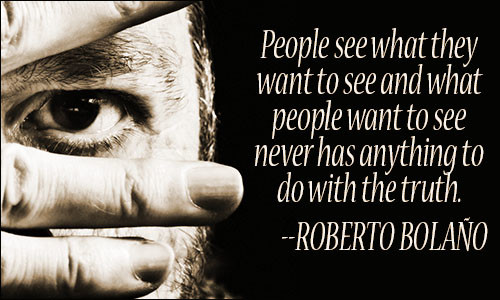
In the quest for winning, the role of those around us cannot be overstated. As the legendary Jim Rohn observed, “You are the average of the five people you spend the most time with.” This reality showcases the transformative power of our immediate social circle – their perceptions can significantly shape our personal reality. It’s a phenomenon of social mirroring, wherein we unconsciously adopt the attitudes, beliefs, and behaviors of those closest to us.
The charismatic life coach Tony Robbins emphasizes the connection between the quality of our lives and the expectations of our peer group. We are deeply influenced, consciously and unconsciously, by their perceptions and expectations.
So, how can we leverage this reality? Be intentional about the company you keep. Seek out those who inspire you, who push you to grow. Yet, maintain your uniqueness. Absorb the positive, let the negative flow past. Remember, you are not merely a reflection of others’ perceptions – you are the artist of your own reality.
The Digital Persona:
Perception of You Created Within Society/Social Media

As we navigate the digital age, the perception of us within society and on social media has taken on a new dimension. It’s an arena where perception can often eclipse reality. This phenomenon reminds us of the wisdom imparted by John Wooden, the exceptional basketball coach, who said, “Be more concerned with your character than your reputation.”
Today, our society shapes a narrative, a brand of ‘you.’ Social media platforms magnify this perception, often blurring the lines between reality and illusion. Robbins suggests, “It’s not about the goal. It’s about growing to become the person that can accomplish that goal.” Society and social media can either facilitate or hinder this growth.
How can we navigate this new digital reality? Remember, you are more than your online persona. Authenticity resonates. Stand for your values, share not just your triumphs but also your trials. Use these platforms to inspire, to learn, and to narrate your own unique journey. You are the author of your story, society, and social media are just the platforms.
The Inner Self:
Perception of Who You Are
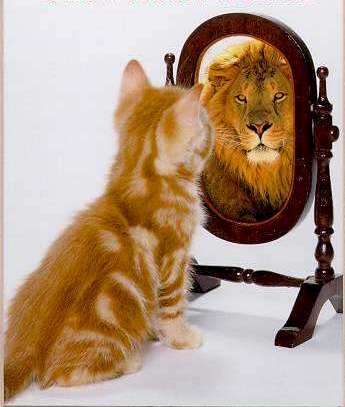
Jordan Peterson, a noted psychologist, preaches the importance of putting your house in order before criticizing the world. This advice extends to our perception as well. Our self-perception lays the foundation of our reality. It’s the prism through which we view and interpret the world.
However, we often fall into the trap of becoming our own harshest critics. This skewed self-perception can create a harsher reality than what truly exists. Geno Auriemma, a renowned basketball coach, aptly said, “What you permit, you promote. What you allow, you encourage.” If we permit a distorted self-perception, we promote a distorted reality.
How can we adjust this perception? Robbins proposes changing our strategy. Understand that you are a work in progress. Recognize your flaws, but celebrate your strengths. Own your mistakes, but also revel in your victories. The pursuit is not for perfection but for progression. By embracing our complexities, we start altering the perception of self.
Overcoming Frustration
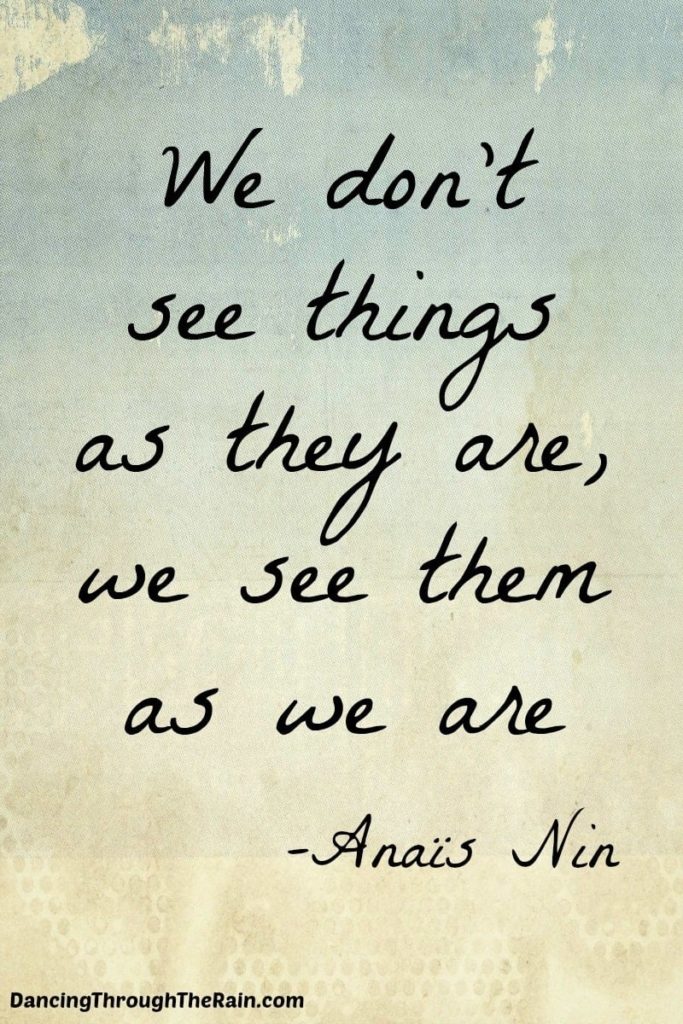
Embarking on the journey of changing perception isn’t easy. It’s fraught with frustrations and obstacles. But as Robbins advises, “Identify your problems but give your power and energy to solutions.” Frustrations are not walls, they are mirrors. They reflect what we need to understand about our perceptions and ourselves.
John Wooden’s philosophy adds a powerful perspective to dealing with frustrations – “Don’t let what you cannot do interfere with what you can do.” When faced with frustration, focus on your strengths and abilities. Transform frustrations into growth opportunities.
Barack Obama’s wisdom fits here beautifully. He once said, “Change is never easy, but always possible.” Changing perceptions is no different. It’s a journey filled with challenges, but the destination makes the journey worthwhile.
Abraham Lincoln’s statement provides another layer of insight. He said, “The best way to predict the future is to create it.” We can apply this to our perceptions. We can shape our future by consciously molding our perceptions today.
Wrap UP
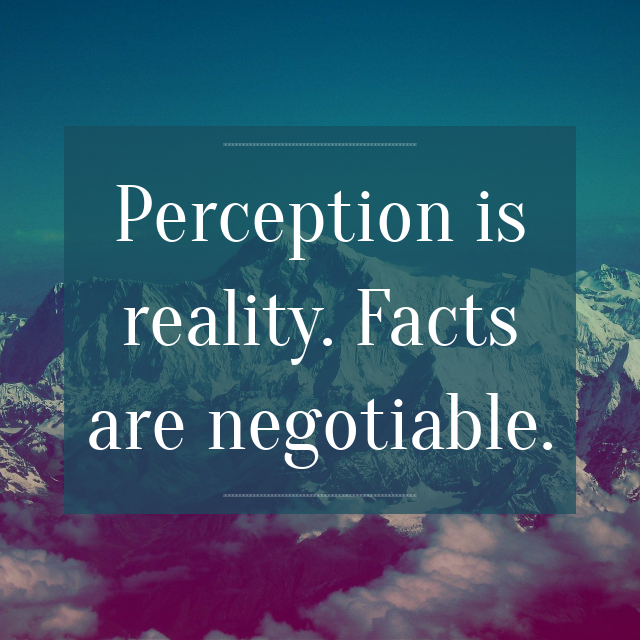
“Perception is reality.” This powerful statement carries immense implications for our journey towards winning. However, perception is not fixed. Like a river, it is fluid, adapting and evolving with time. It is influenced by our experiences and in turn, influences our reality.
Navigating the journey of perception may seem like traversing a complex maze, but it is through this maze that we come to understand ourselves and our world. Every twist, every turn, every dead-end, and every clear path offers lessons for growth.
Embark on this journey with courage, patience, and resilience. For it is through understanding and molding our perceptions that we earn our victories, not just in the world outside, but most importantly, in the battleground within. In the end, perception isn’t just reality, it’s the foundation upon which our winning is built and ultimately, earned.
What is your experience?
Please share in the comments!
Please leave a comment below and let us know your experiences with the “Perception is Reality” concept in your life, good or bad. It will make our website more interesting and we would really appreciate it!
Additional Resources related to
“Perception is Reality”….
Tony Robbins’ “Awaken the Giant Within“ – This book delves deep into the concept of personal perception and provides actionable steps on how to harness and change our perceptions. You can look for it on Amazon or other book-selling platforms.
Jordan Peterson’s “12 Rules for Life: An Antidote to Chaos” – Peterson explores the importance of self-perception and self-improvement. This book can be found on multiple platforms like Amazon, Barnes & Noble, etc. [The hardcover version is, at the time of this writing, selling for less than $15 on Amazon.com.]
Jim Rohn‘s “7 Strategies for Wealth & Happiness” – This book presents strategies on how to better navigate the influence of others’ perceptions in your life.
John Wooden‘s “Wooden: A Lifetime of Observations and Reflections On and Off the Court” – This book provides insights into how society’s perception of an individual can influence their actions.
The Obama White House Archives – On this website, you can find many speeches where Barack Obama discusses change and overcoming adversity.
Geno Auriemma’s Interviews and Speeches – Auriemma often speaks about self-perception and leadership in sports. His interviews and speeches can be found on various sports news websites and video-sharing platforms like YouTube.
Lincoln’s Letters and Speeches – Abraham Lincoln’s letters and speeches are insightful, many of which discuss the power of self-creation and shaping one’s future. These can be found on academic databases or dedicated historical sites.
Other points of view:
“Quiet: The Power of Introverts in a World That Can’t Stop Talking” by Susan Cain – This book provides a contrasting view on how perception is influenced by introverted versus extroverted personality traits.
“The Shallows: What the Internet Is Doing to Our Brains” by Nicholas Carr – This book discusses the impact of the internet (including social media) on our minds, offering a different perspective on the influence of digital platforms on our self-perception and reality.

 Affirmations are a powerful way for you, as an athlete, to overcome ways of thinking that are holding you back from becoming your best. Society has programmed many “limiting beliefs” into your mind over your lifetime. If you have read my post about
Affirmations are a powerful way for you, as an athlete, to overcome ways of thinking that are holding you back from becoming your best. Society has programmed many “limiting beliefs” into your mind over your lifetime. If you have read my post about 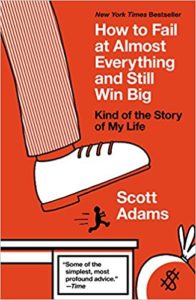
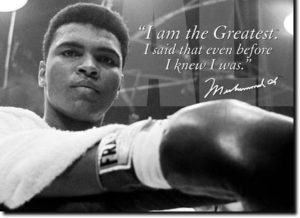
 One of the biggest pet peeves I have as a coach is the
One of the biggest pet peeves I have as a coach is the 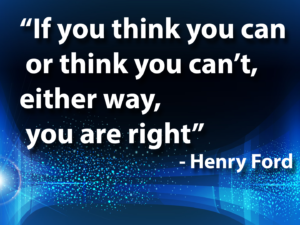 As I mentioned before, one great example is “I can’t”. Whenever you catch yourself saying, or thinking, the words “I can’t”, immediately STOP and take another look at the situation. When you say “I can’t” that implies that you
As I mentioned before, one great example is “I can’t”. Whenever you catch yourself saying, or thinking, the words “I can’t”, immediately STOP and take another look at the situation. When you say “I can’t” that implies that you